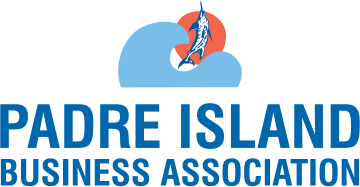Padre Island has so much to offer residents and visitors alike. From great food, entertainment,beautiful views and community happenings to a future of possibilities. When trying to find all these things most will likely reach out to an internet search engine to assist in locating information on what’s available. If you are a business looking to capture the imaginations of our residents and visitors when they search for your offerings it may be helpful to understand how search engines work and ways to improve your website so your future customers can find you.
Crawling
The first step of searching the internet is actually finding what web pages exist. As there is no central registry that contains all of the websites and the information they contain each search engine (Google, Bing, etc..) must have a way to find them. This massive job is done by small programs called bots also known as spiders, robots and web crawlers. And the process they use of finding websites is known as crawling. A lot of the pages are known to the search engine because they have been crawled before.
Others are discovered because of links from a page that the search engine already knows. And more are discovered in the process of a web manager / owner requesting the search engine to evaluate a new site or changes to an existing one. Google actually publishes the best practices called Google Webmaster Guidelines.
Tips for improving your site crawling from Google:
● For changes to a single page, you can submit an individual URL to Google
● Get your page linked to by another page that Google already knows about. However, be
warned that links in advertisements, links that you pay for in other sites, links in
comments or other links that don’t follow the Google Webmaster Guidelines won’t be
followed.
● If you ask Google to crawl only one page, make it your home page. Your home page is
the most important page as far as Google is concerned. To encourage a complete site
crawl, be sure your home page (and all pages) contain a good site navigation system
that links to all the important sections and pages on your site, this helps users (and
Google) find their way around your site.
Indexing
Once a website is identified the search engine will try to understand what the website is about. This process is known as indexing. During the indexing process, the search engine will analyze and catalog keywords, images, and videos along with other information to better understand what the site is about. It then creates an index which is a huge storage container stored across multiple computers.
Tips to improve your page indexing from Google:
● Create short, meaningful page titles.
● Use page headings that convey the subject of the page.
● Use text rather than images to convey content. Although image recognition continues to
improve computers still understand text far better than images.
Serving (and ranking)
The final step in the process is of course when you type words into the search engine and a list of sites that meet your criteria are listed known as serving. The search engine tries to list the most relevant quality content to meet your needs based upon a variety of factors. These can include location, language, device (desktop or phone) among a host of other criteria contained in a complicated algorithm.
An algorithm is a process or set of rules to be followed in calculations or other problem-solving operations, especially used by computers. Search algorithms can be rather large, complicated and are kept proprietary (secret) as to not tip off the competition.
Tips to improve your serving and ranking from Google:
● Make your page fast to load, and mobile friendly.
● Put useful content on your page and keep it up to date.
● Follow the Google Webmaster Guidelines, which help to ensure a good user experience.
● Read more tips and best practices from Googles SEO starter guide.
At the end of the day, all search engines are looking to provide the best experience for their users. Provide good quality, up to date content with a little knowledge of the ever-changing world of how crawling, indexing and serving from search engines work. With these tools in your toolkit, your website will provide you with the best return on your investment.
Frank Moody, IslandARVR
